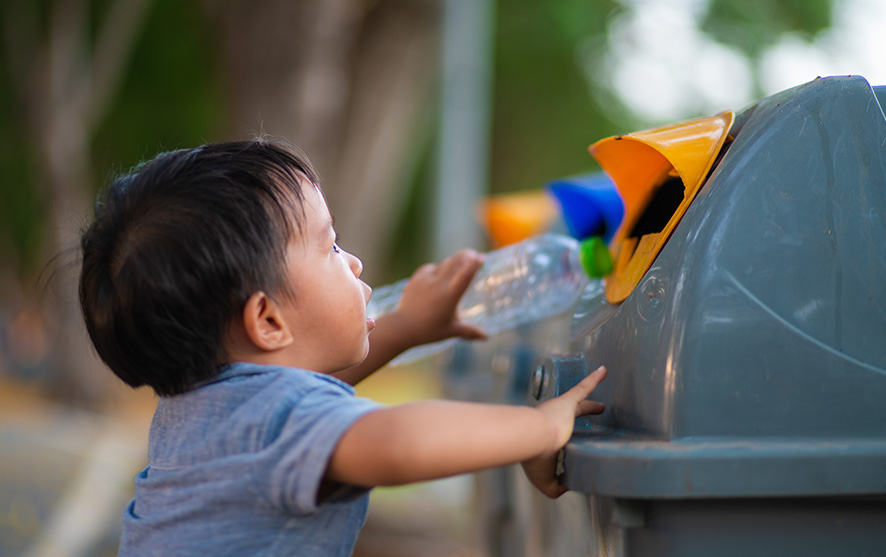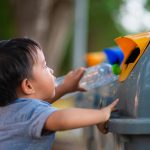Tidying up the garden grass
What you need Child-friendly scissors Some outdoor space - garden, park or grassy area Benefits [...]
Read more

This will be a good learning project, and requires you to save all of your rubbish for one week. Start the week by setting up 4 boxes to keep all of your rubbish in, and encourage your child to check these boxes throughout the week ensuring that the correct materials are being sorted together (glass, plastic, metal, paper/cardboard). Make sure to highlight safety hazards to your child such as sharp broken glass or tin cans.
When the week is up, work together to organise all your rubbish into what can and can’t be recycled (here is a guide from Hackney Council – you could research your local area together.) As a general rule, metal, glass, hard plastics and clean paper/card can be recycled. Unfortunately, dirty paper (including tissues) and scrunchy plastic (such as cling film or snack packets) cannot be recycled. Talk about all of these rules with your child and have a think about why they think some things can and others can’t be recycled (you could even do some online research together).
Once everything is sorted into recyclables and landfill waste, have a closer look at your landfill waste. What rubbish do you think could have been avoided? For example, if there is a lot of clingfilm, perhaps you could use recyclable tin foil instead? Or better yet, invest in some reusable beeswax wraps and avoid the waste altogether. Talk about ways to reduce your waste with your child, see if they have any ideas and then research more ideas together online. Perhaps make a list together of some sustainable swaps you would like to try together.
Now look at your recyclable waste, and again see if there is anything here you think you could reduce or replace with a sustainable alternative. Perhaps you have lots of milk/mylk bottles; although these are recyclable, you might find that a milkman delivers in your area and you could start having reusable glass bottles and save on waste here too.
Hopefully this process will have taught you and your child a little more about the waste produced in your household, and inspired some ideas of how to reduce this. As an extra activity, you could have a go at junk modelling with some of your waste, so that your child has a go at reusing these items that would otherwise have been thrown away. Good luck!